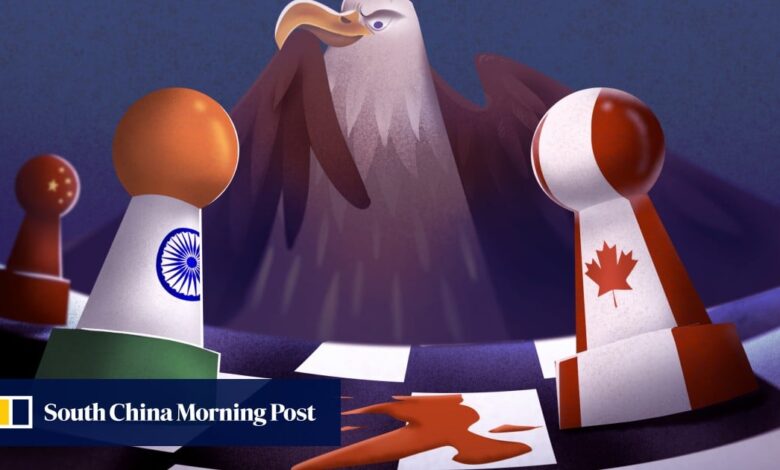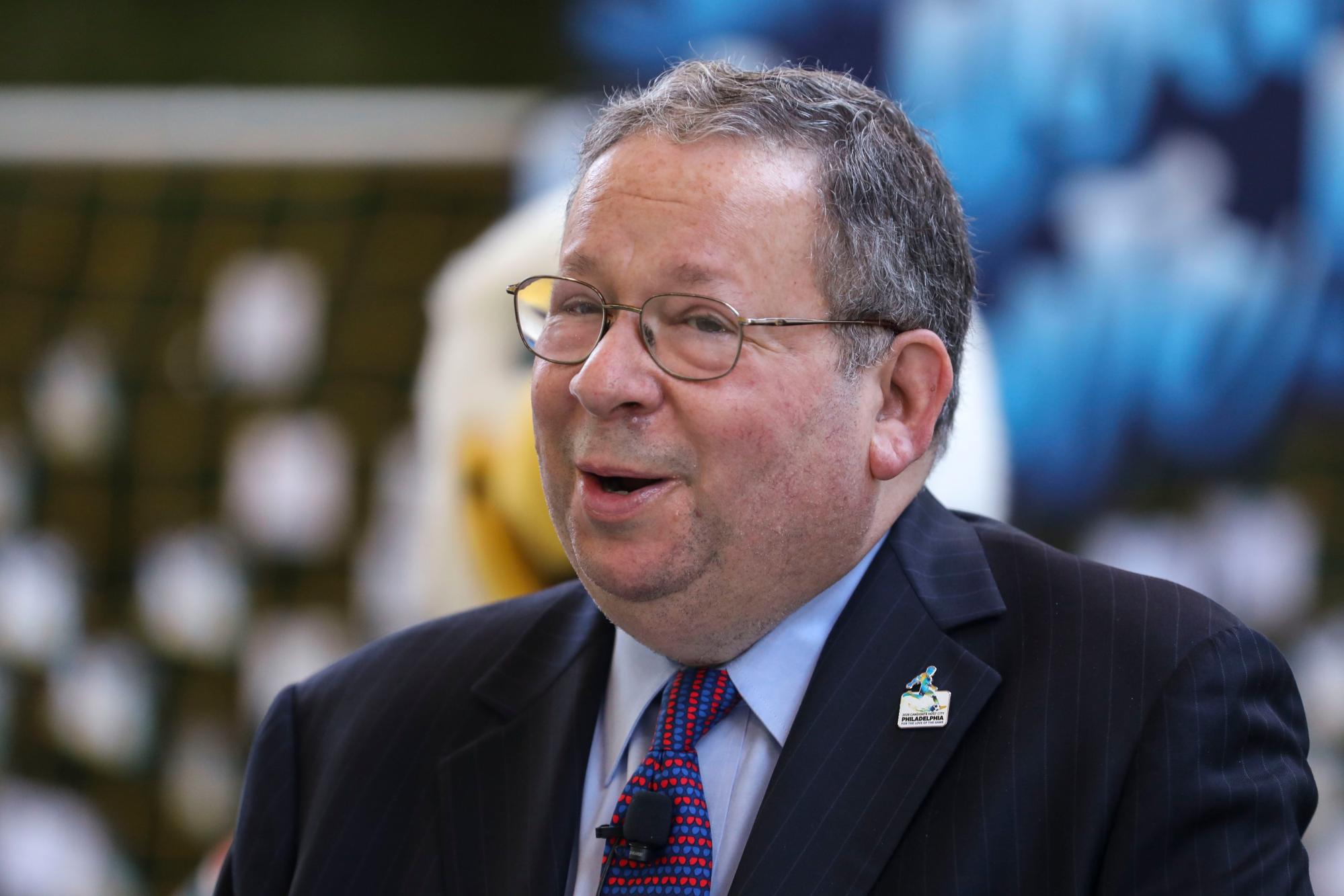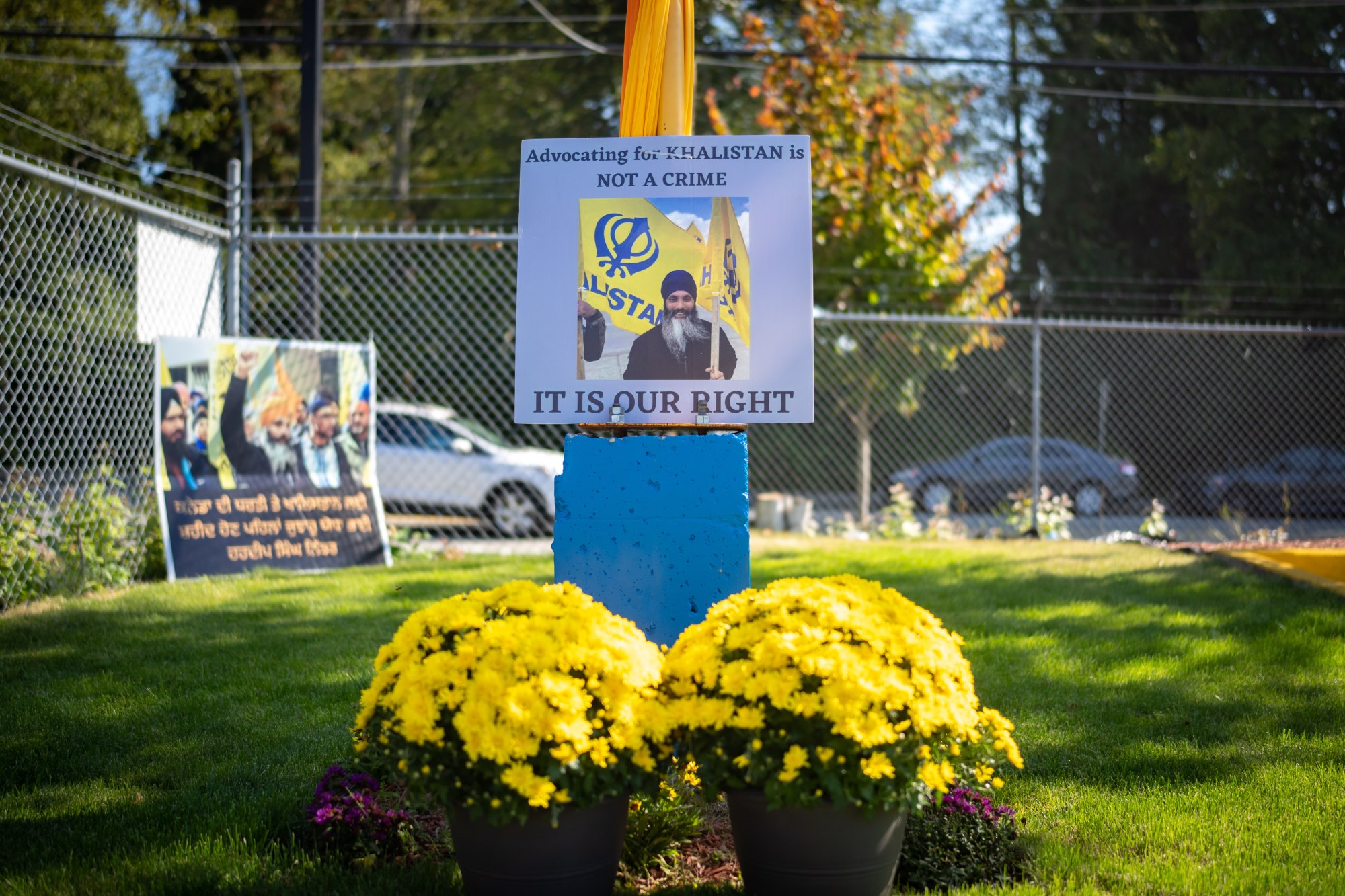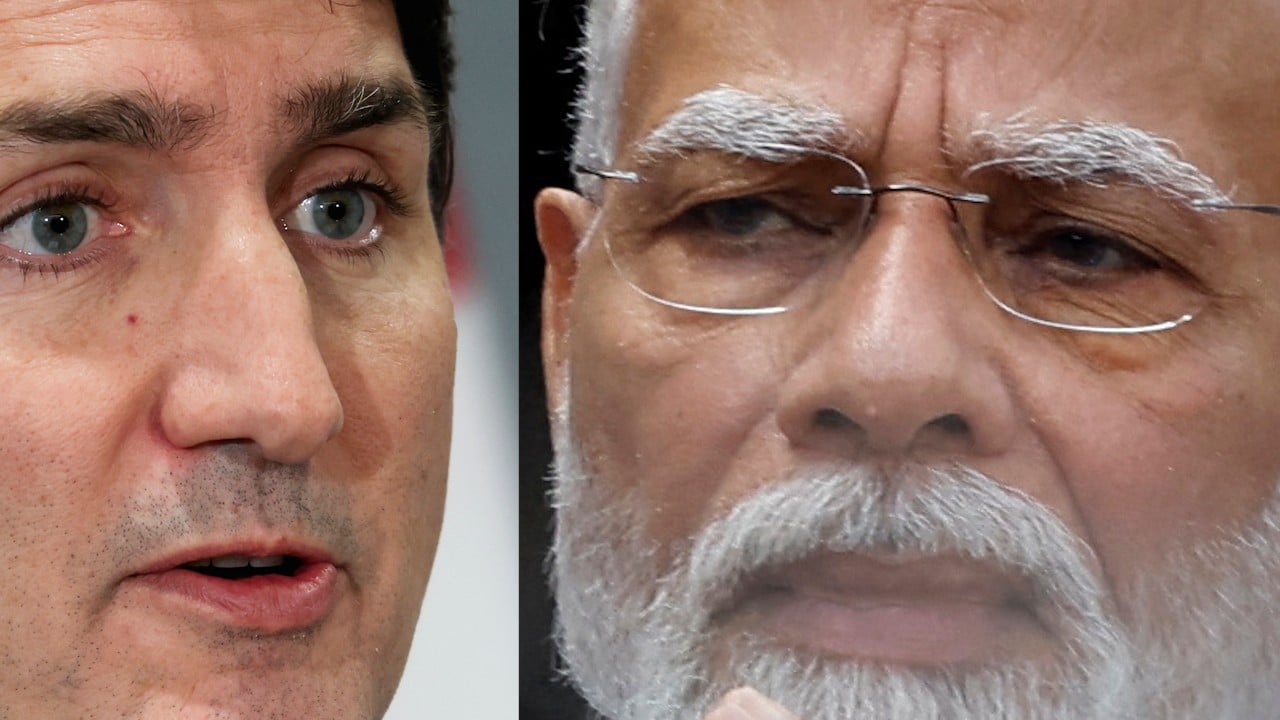Fallout from killing of Canadian Sikh activist may pose predicament for US with ally India

[ad_1]
A tit-for-tat dismissal of diplomats ensued, complicating US-led efforts to build a united bloc of allies and partners in a deeply polarised geopolitical landscape.
Manjari Chatterjee Miller of the Council on Foreign Relations, a think tank in Washington, said that if Trudeau “releases credible evidence for his allegations, the assassination will give many of India’s partners pause, even if they do not publicly side with Canada”.
She added that the allegations, “particularly if proved true”, will put Washington in a “very tough spot”.
India-Canada ties going ‘south rapidly’ amid row over killing of Sikh separatist
India-Canada ties going ‘south rapidly’ amid row over killing of Sikh separatist
“The United States has spent the last decade strengthening its partnership with India. At the same time, Canada is a Nato ally and a friendly neighbour. Moreover, there is a significant population of Indian-origin citizens, including Sikhs, in the United States. Refraining from taking sides may not be a sustainable long-term policy for the US government,” Miller said.
Shortly after Trudeau’s speech, the country’s public broadcaster CBC reported that Canada had “amassed both human and signals intelligence in a months-long investigation” into the murder.
It added that “some of the information was provided by an unidentified ally in the Five Eyes alliance” – an intelligence-sharing network comprising the US, Britain, Canada, Australia and New Zealand.
A Financial Times report said Biden had also taken up the issue with Modi on the G20 sidelines along with “several members” of the Five Eyes.

Though the White House did not confirm whether the president spoke about it with Modi, whom Biden calls a “friend”, US Secretary of State Antony Blinken reacted to the allegations with caution.
He said the US was “deeply concerned” and wanted to see “accountability” over the killing.
“We have been consulting throughout very closely with our Canadian colleagues, not just consulting but coordinating with them on this issue,” Blinken said, urging India to “work with the Canadians”.
But on Sunday, the US ambassador to Canada, David Cohen, dropped another bombshell.
He told a Canadian TV network that it was intelligence gained by the Five Eyes network that resulted in Canada’s public disclosure of the Indian government’s suspected connection to the assassination.
US tells India it’s ‘important’ to work with Canada on Sikh murder probe
US tells India it’s ‘important’ to work with Canada on Sikh murder probe
Cohen said he was “confirming that there was shared intelligence among Five Eyes partners that helped lead Canada to making the statements that the prime minister made”.
He warned that if the allegations “prove to be true, it is a potentially a very serious breach of the rules-based international order”.
However, Miller of the Council on Foreign Relations predicted that “in the long run, barring further crises in the Canada-India relationship, the issue will probably recede. Given China’s rise, India is currently of huge strategic importance to the West.”
She added, however, that “the situation does raise questions about what it means for India to become a great power”, noting that over the years New Delhi had grumbled not only about interference in its internal affairs, but “also touted its own respect for other countries’ sovereignty”.
Canada warns India to treat Sikh slaying allegation seriously
Canada warns India to treat Sikh slaying allegation seriously
Relations between Canada and India have been rocky over the issue of Sikh separatism, though the countries share anxiety over China’s rise and have maintained strong defence and trade ties.
Split in two during the India-Pakistan partition in 1947, the state of Punjab on the Indian side witnessed an armed insurgency called the Khalistani movement for a Sikh homeland from the mid-1980s to mid-1990s. The community had suffered enormously during the violent partition following India’s independence from Britain.
Though the movement died down in India after an army operation in the country’s most sacred Sikh temple killed a pro-Khalistan leader and the ensuing assassination of prime minister Indira Gandhi by her own Sikh bodyguard, Modi has raised concerns about the Canadian government’s soft approach towards Sikh separatists, many of whom migrated to Canada in the last two decades.
Today, Sikhs comprise more than 2 per cent of Canada’s population, more than India.
In June, New Delhi complained about a parade float in Canada that commemorated the assassination of Indira Gandhi. In 2020, a Canadian diplomat was summoned by India after Trudeau made sympathetic comments about farmers’ protests in Punjab.

The Modi government has called Trudeau’s allegations about Nijjar’s murder “absurd”.
Speaking on the sidelines of the UN General Assembly in New York on Tuesday, Indian Foreign Minister Subrahmanyam Jaishankar blamed Ottawa for creating a “permissive” environment for anti-India Sikh separatists justified in the name of democracy.
He said that in the last few years, Canada has experienced “a lot of organised crime, violence, extremism”, adding that it was New Delhi that has been “badgering” the Canadians on “a lot of information” that it had shared with Ottawa on “organised crime leadership, which operates out of Canada”.
“And there are a large number of extradition requests, there are terrorist leaders who have been identified,” he added, emphasising that “our concern is that it’s really been very permissive because of political reasons. So we have a situation where our diplomats are threatened, our consulates have been attacked.”
Who was the Sikh activist whose killing has divided Canada and India?
Who was the Sikh activist whose killing has divided Canada and India?
Responding to a question on whether Ottawa had shared any evidence with New Delhi, Jaishankar said that “if somebody gives us any specific or relevant information, we’re prepared to look at it”.
He refused to comment on reports about the Five Eyes network sharing intelligence about the murder. “I am not part of the Five Eyes and I am certainly not the FBI. So you’re asking the wrong person,” he said.
Miller said that whether the Indian government is justified in its complaints about Canada’s “laxity on Sikh terrorism”, if it was behind Nijjar’s assassination, “the act would count as a violation of Canadian sovereignty and an interference in Canadian domestic politics. That will not be easily forgotten by India’s partners.”
Crackdowns on activists, journalists and other critics of the government and attacks on religious minorities have brought the Modi government bad publicity in the West.
Several human rights activists protested against the Indian leader in June when he visited the White House for a state visit. Over 70 Democratic lawmakers boycotted Modi’s speech on Capitol Hill.
Before the visit, Human Rights Watch and Amnesty International, both global human rights organisations, invited policymakers and journalists in Washington to view a BBC documentary on riots that erupted in 2002 while Modi served as the chief minister of the Indian state of Gujarat.
A report this year by Freedom House, a US government-funded non-profit organisation, described India as “partly free” for the third year in a row, adding that “democratic rights in India remain under pressure, particularly for marginalised groups”.
India scored 51 out of 100 on internet freedom, according to the report, placing it alongside Bangladesh, Libya, Iraq, Kyrgyzstan and Nicaragua.
Jaishankar condemned such reports as having an “ideological agenda”.
Most anti-Muslim hate speech in India linked to Modi’s ruling party: report
Most anti-Muslim hate speech in India linked to Modi’s ruling party: report
“People who are writing these reports have a strong bias. Often they distort facts,” he said.
Jaishankar also said that Washington needed New Delhi as much as India needed the US, since “there are a finite number of partners out there”.
Miller said that “as a potential justification” of Nijjar’s killing some Indians online and in local media were likening the Indian government to Israel, “another partner country of the West that protects against terrorist threats through political assassinations abroad”.
“But some experts are also drawing comparisons to President Vladimir Putin’s Russia,” she said, “which would be a much more fraught parallel for India.”
[ad_2]
Source link






